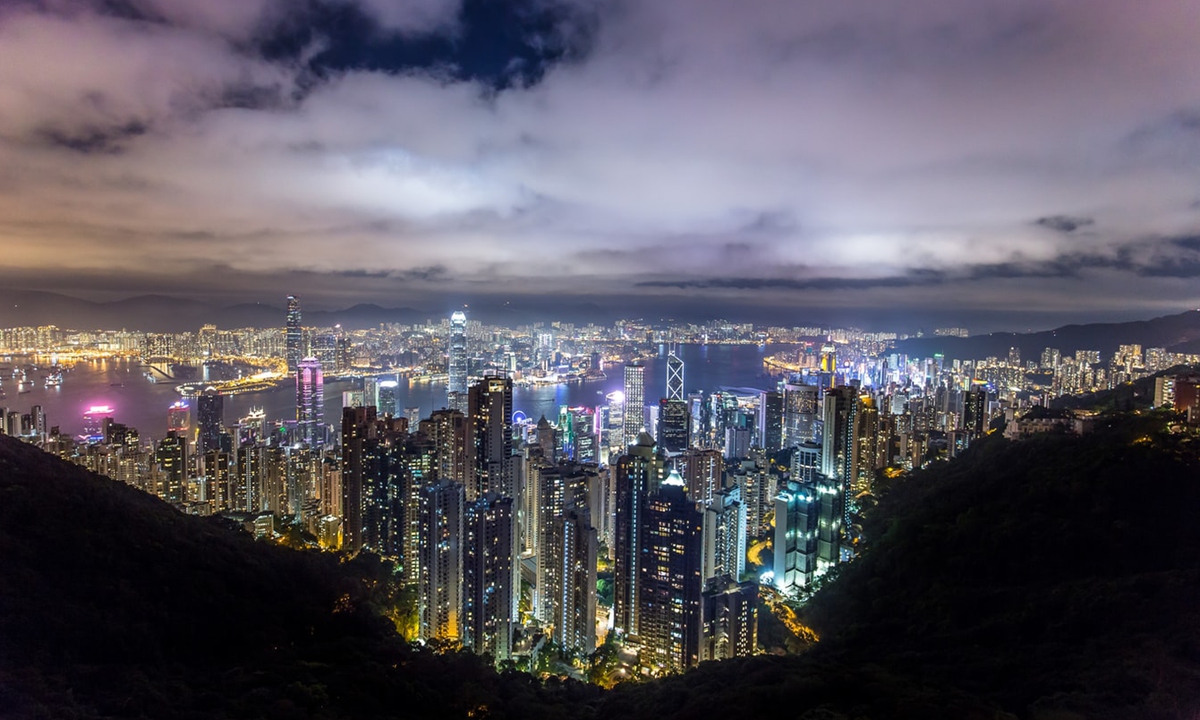
Hong Kong Photo: Unsplash
Over previous decades, Hong Kong has been predicted as dying or even pronounced dead quite a few times, even though the city is bustling with life now more than any time in the past.
In 1995, when Hong Kong's return to China was approaching, a Fortune Magazine cover story proclaimed: "The Death of Hong Kong", claiming that Hong Kong would not be able to maintain its status as an international trade and financial centre after the return. Sarcastically, in 2007, only 12 years later, the magazine published another article: "Oops! Hong Kong is hardly dead".
In 2020, when Beijing promulgated the Hong Kong National Security Law, the then U.S. Secretary of State Mike Pompeo exclaimed that Hong Kong was facing "a death knell" for its freedom. Chris Patten, the last British Governor of Hong Kong, lamented "The Lonesome Death of Hong Kong". And the Atlantic published an article commenting on "the End of Hong Kong".
In 2021, the improvements made to the electoral system, which assures the "patriots administering Hong Kong" principle, attracted the world's attention. Wailings that "democracy is dead in Hong Kong ", "'one country, two systems' is dead", and "Hong Kong has reached a dead end" are flooding Hong Kong like waves roaring in from the South China Sea.
It is therefore no wonder some people keep claiming that Hong Kong is an inexplicably "cursed" city. But is Hong Kong really "dying"? If we want to talk about the life and death of democracy in Hong Kong today, we must first look back in its history.
When Hong Kong was under British colonial rule, its residents had nothing: no status, no democracy, no nationality. They had no right of abode in Britain, and were clearly regarded as second-class citizens. Democracy was a luxury that could not be offered to Hong Kong residents, as all 28 British Governors of Hong Kong were appointed by the British Crown, without a democratic vote of any kind.
Before the return, local residents, who accounted for 98% of Hong Kong's population, could not enjoy equal citizenship or political participation. "Public Order Ordinance" and the "Societies Ordinance" imposed strict restrictions on organisations, meetings and processions. Proposals put forward by the Executive Council and the Legislative Council, which performed the "democratic function" of the British Hong Kong Government, did not impose any legal restrictions on the Governor, as they had advisory capacity only.
Democracy in British Hong Kong, so to speak, was indeed dead. In fact it had never been brought into being.
After the return to the motherland, everyone who is a permanent resident of Hong Kong Special Administrative Region enjoys the electoral right in accordance with the law. Democratic rights such as peaceful demonstration are fully enshrined in law, and reasonable and legitimate demands of residents can be properly resolved through legal channels. Hong Kong residents have more democratic rights under the "one country, two systems" policy than any time in history.
Hong Kong enjoys fresh water, vegetables, meat and other supplies from the rest of the country over the years. The integration of the Guangdong-Hong Kong-Macao Greater Bay Area through the construction of the Hong Kong-Zhuhai-Macao Bridge, allows Hong Kong to fully benefit from the mainland's economic boom.
It is the Chinese people that care most about the future and destiny of Hong Kong. It is the Chinese government that provides the best support for Hong Kong to stay prosperous and stable.
Therefore, the claim by some Westerners that Hong Kong is deeply mired entirely ignores the fact that Hong Kong is more thriving and bustling than ever.
Nearly 24 years have passed since the return of Hong Kong to the motherland. Certain Britons, however, still cling to a nostalgic colonial mind-set and consider that they "have special responsibilities to Hong Kong." Indeed, if Hong Kong were held on the track as the West expected, the West could turn Hong Kong into an unsinkable financial carrier in the Pacific Ocean, an anti-China and anti-communist bridgehead, and a pawn curbing China's development.
But, unfortunately for the West, they have no sovereignty, no governing power, and no supervision power over Hong Kong.
In fact, when the British colonized Hong Kong more than 150 years ago, it used this land solely as a place for merchants to repair their ships and store goods, including contrabands smuggled into China. For a country as modernized as Britain, isn't it fair to say that the return of Hong Kong is a kind of self-salvation from its original sin of aggression and colonization and a manifestation of its own democracy and rule of law in accordance with the principle of non-interference?
Luckily, despite the haunting "curse" from some ill-wishers, Hong Kong has become an important financial, service and shipping centre in Asia as well as the whole world due to its advantageous position backed by the motherland. It is undoubted that those who want Hong Kong to be separated from the motherland are those who want Hong Kong to encounter a dead end.
